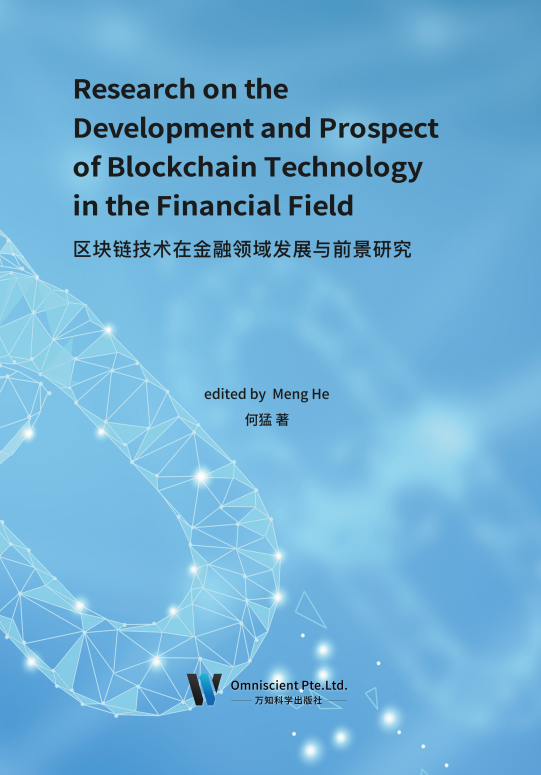
Preface
As an emerging IT technology in recent years, blockchain may bring changes to any social cooperation mode with credit endorsement by third-party institutions, and trigger profound changes in the fields of financial services, enterprise operation, social life and even social governance.
Blockchain is a decentralized and distrusted distributed ledger technology, which is composed of distributed data storage, point-to-point transmission, consensus mechanism, encryption algorithm and other technologies. Blockchain is the underlying technology originated from bitcoin. Although the blockchain technology is still in development, there are still many problems to be solved, but with the continuous improvement of the basic platform, the application of blockchain will get rapid development. At present, on the one hand, blockchain has a dazzling aura, on the other hand, there are still many problems to be solved in practical applications, such as a large number of redundant storage. Shared data brings challenges in data security and privacy protection. In decentralized and anonymous blockchain system, private key is used to manage user assets. Once the private key is lost, the corresponding asset ownership will also be lost. However, nowadays, the protection of private key is basically realized by software, and it is possible to be broken in theory. In addition, there are also some contradictions between the protection and verification of sensitive data on the chain. People not only hope that important information is invisible to irrelevant parties, but also need stakeholders to verify information in some scenarios. In addition, there are also some problems in smart contract, such as the existing judicial system’s understanding and acceptance of smart contract, some qualitative contract terms are difficult to be expressed in code, and the impact of code defects on the implementation of smart contract. These problems of blockchain need to be further explored, and a lot of hard work needs to be done.
前 言
区块链作为近年来新兴的 IT 技术, 对任何由第三方机构来进行信用背书的社会协作模式都可能会带来改变,并在金融服务、企业运作、社会生活甚至社会治理等领域引发深远的变革。
区块链是一种去中心化、去信任化的分布式账本技术,由分布式数据存储、点对点传输、共识机制、加密算法等多种技术集合而成。区块链是起源于比特币的底层技术,虽然区块链技术仍在发展之中,仍有不少问题需要解决,但是随着基础平台的不断完善,区块链应用将得到快速发展。当前,区块链一方面带有耀眼的光环,另一方面在现实应用中还存在着很多问题亟待解决,比如,大量冗余存储等。共享的数据带来数据安全和隐私保护等方面的挑战; 在去中心化、 匿名的区块链系统中,使用私钥管理用户资产,私钥一旦丢失,对应的资产所有权也将丢失,而如今应用对于私钥保护基本上是用软件来实现的,理论上都存在被攻破的可能性。另外,链上敏感数据的保护与验证也存在一定的矛盾,人们既希望重要的信息对于无关者不可见,又需要相关者在一些场景下验证信息。除此之外,智能合约也存在着一些问题,如现有司法系统对智能合约的理解和接受程度问题,部分定性合同条款难以用代码来表述的问题,代码缺陷对智能合约执行影响的问题等。对于区块链的这些问题还需要进一步探索,还有大量艰苦的工作要做。

Meng He, male, the Han nationality, master’s degree, mediate economist, born in Jining City, Shandong Province in December 1977. He graduated from North University of China(1996-2000) obtaining his bachelor’s degree and from Tianjin University of Finance and Economics with master’s degree. He is currently the deputy general manager of the Financial Technology Department of Hengfeng Bank Co., Ltd. Qingdao Branch.For more than 20 years, he has been engaged in the work of Zhejiang Fengshang, Shanghai Pudong Development Bank, Shanghai Pudong Development Bank, China Banking Corporation. He has won many honorary titles, such as Advanced Individual of head office and branch, Advanced Individual of China Union Pay bank card work, and “Golden Bull Award”.
何猛,男,汉族, 1977 年 12 月生,山东济宁人,硕士,中级经济师,恒丰银行股份有限公司青岛分行金融科技部副总经理(主持工作)。本科毕业于中北大学(1996-2000),硕士研究生毕业于天津财经大学。工作 20 余年,先后在华夏、浦发、浙商、恒丰总分行,从事科技、零售、交易银行、网络金融等工作。多次获取总分行先进个人、中国银联银行卡工作先进个人、“金牛奖”等荣誉称号。